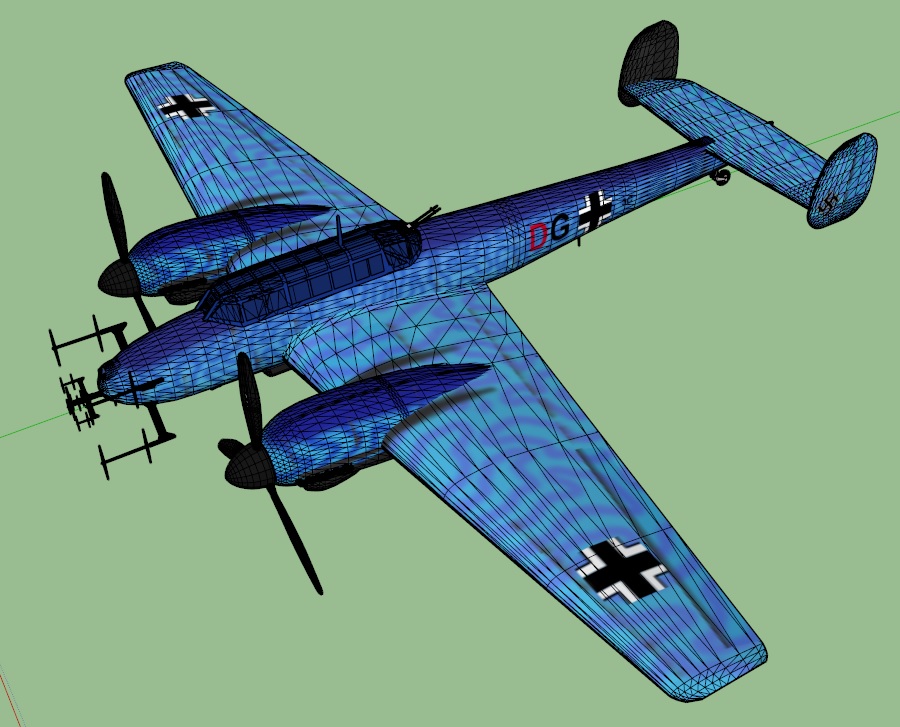 |
|
|
|
|
| 3D Model Slide Show | Image 43 of 60 | Messerschmitt Bf-110 |
 |
||
Messerschmitt Bf-110 The Messerschmitt Bf 110, often (erroneously) called Me 110,[2] was a twin-engine heavy fighter (Zerstörer—German for "Destroyer") and fighter-bomber (Jagdbomber or Jabo) developed in Nazi Germany in the 1930s and used by the Luftwaffe and others during World War II. Hermann Göring was a proponent of the Bf 110. It was armed with two MG FF 20 mm cannons, four 7.92 mm (.312 in) MG 17 machine guns, and one 7.92 mm (.312 in) MG 15 machine gun or twin MG 81Zs for defence. Development work on an improved type to replace the Bf 110, the Messerschmitt Me 210 began before the war started, but its teething troubles resulted in the Bf 110 soldiering on until the end of the war in various roles, alongside its replacements, the Me 210 and the Me 410. The Bf 110 served with considerable initial success in the early campaigns, the Polish, Norwegian and Battle of France. The primary weakness of the Bf 110 was its lack of agility in the air, although this could be mitigated with the correct tactics. This flaw was however exposed and mercilessly exploited when flying as close escort to German bombers during the Battle of Britain. When British bombers began targeting German territory with nightly raids, some Bf 110-equipped units were withdrawn and redeployed as night fighters, a role to which the aircraft was well suited. After the Battle of Britain the Bf 110 enjoyed a successful period as an air superiority fighter and strike aircraft in other theatres. During the Balkans Campaign, North African Campaign and on the Eastern Front, it rendered valuable ground support to the German Army as a potent fighter-bomber. Later in the war, it was developed into a formidable night fighter, becoming the major night-fighting aircraft of the Luftwaffe. Most of the German night fighter aces flew the Bf 110 at some point during their combat careers, and the top night fighter ace of all time, Major Heinz-Wolfgang Schnaufer, flew it exclusively and claimed 121 victories in 164 combat missions. CLICK HERE TO DOWNLOAD |
||
| < back | up ^ | next > |